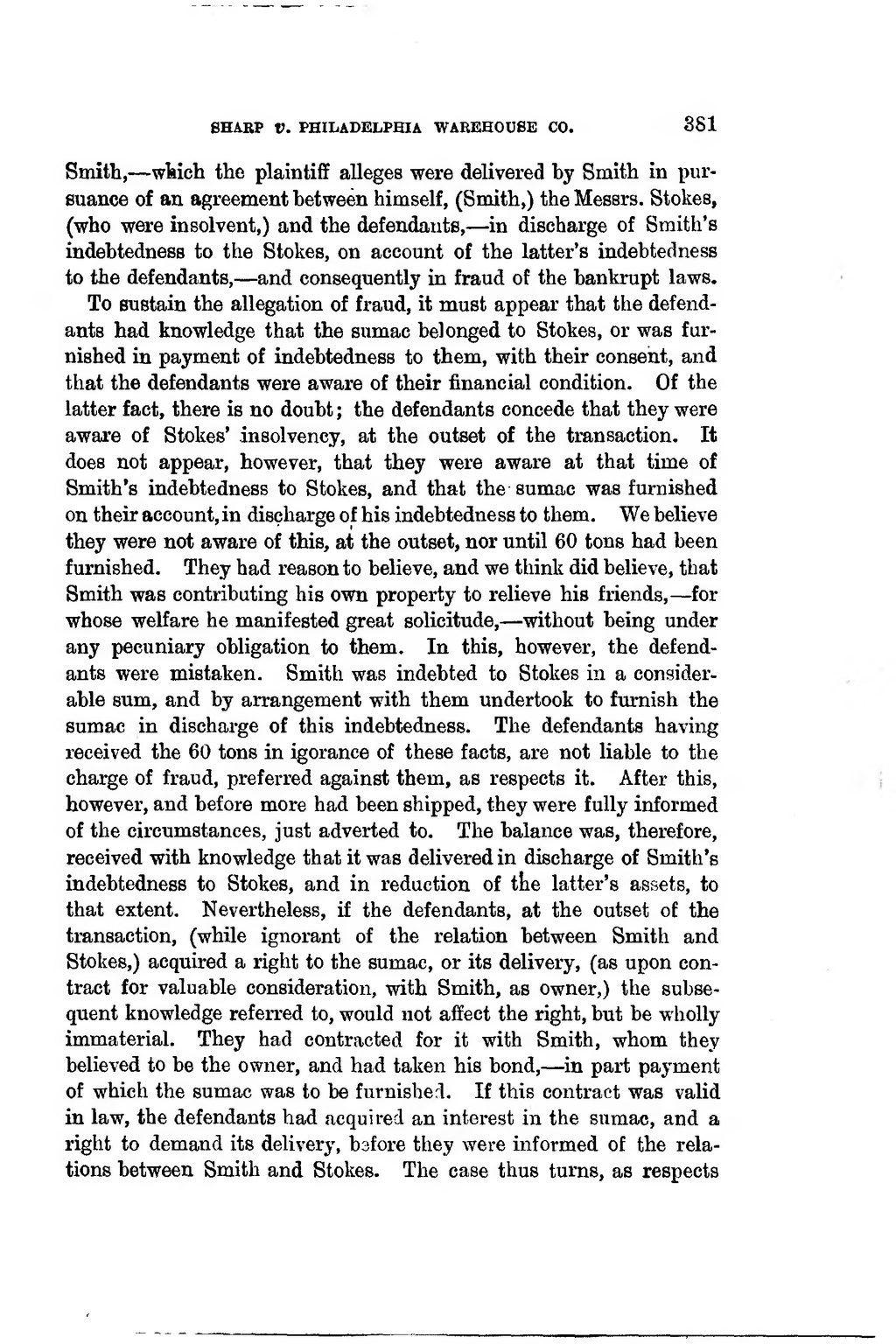SHARP V. PHILADELPHIA WAREHOUSE CO. 381 �Smith, — wfeich the plaintiff alleges were delivered by Smith in pur- suance of an agreement between himself, (Smith,) the Messrs. Stokes, (who were insolvent,) and the defendants, — in discharge of Smith's indebtedness to the Stokes, on aocount of the latter's indebtedness to the defendants, — and conseqnently in fraud of the bankrupt laws. To Bustain the allegation of fraud, it must appear that the defend- ants had knowledge that the sumac belonged to Stokes, or was fur- nished in payment of indebtedness to them, with their consent, and that the defendants were aware of their financial condition. Of the latter fact, there is no doubt ; the defendants concede that they were aware of Stokes' insolvency, at the outset of the transaction. It does not appear, however, that they were aware at that time of Smith's indebtedness to Stokes, and that the sumac was furnished on their account, in discharge of his indebtedness to them. We believe they were not aware of this, at the outset, nor until 60 tons had been furnished. They had reason to believe, and we think did believe, that Smith was contributing his own property to relieve his friends, — for whose welfare he manifested great solicitude, — without being under any pecuniary obligation to them. In this, however, the defend- ants were mistaken. Smith was indebted to Stokes in a consider- able sum, and by arrangement with them undertook to furnish the sumac in discharge of this indebtedness. The defendants having received the 60 tons in igorance of these facts, are not liable to the charge of fraud, preferred against them, as respects it. After this, however, and before more had been shipped, they were fully informed of the circumstances, just adverted to. The balance was, therefore, received with knowledge that it was delivered in disoharge of Smith's indebtedness to Stokes, and in reduction of tLe latter's assets, to that extent. Nevertheless, if the defendants, at the outset of the transaction, (while ignorant of the relation between Smith and Stokes,) acquired a right to the sumac, or its delivery, (as upon con- tract for valuable consideration, with Smith, as owner,) the subse- quent knowledge referred to, would not affect the right, but be wholly immaterial. They had contracted for it with Smith, whom they believed to be the owner, and had taken his bond, — in part payment of which the sumac was to be furnished. If this contract was valid in law, the defendants had acquired an interest in the sumac, and a right to demand its delivery, bsfore they were informed of the rela- tions between Smith and Stokes. The case thus turns, as respects ��� �
